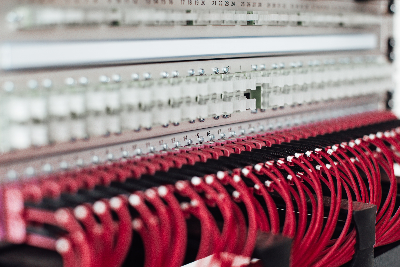How to Secure a Business Network
How to Secure a Business Network
When it comes to your business, few things are more important than the security of your network. After all, just one data breach can wreak havoc on your business and cause you to spend years taking care of the problem.
The thing is, securing your business network is much easier than you think, especially if you familiarise yourself with a few basics. In fact, following are some of the things that you can do to make your company’s network less vulnerable to all sorts of data breaches and thefts.

Restrict or Disable DHCP
Dynamic Host Configuration Protocols, or DHCP, define what IP addresses your network devices will have. With DHCP, it is easier to maintain a WiFi network. To make it even more secure, simply limit the number of IPs that the DHCP assigns. Or, you can disable this feature altogether.
If you choose the latter, you’ll have to assign an IP address manually for all of the devices you have connected to your WiFi.
Use a VPN
Virtual private networks, or VPNs, will encrypt all of your Internet connections as well as all of the data that is transferred via your network. If a protected connection is lost, most VPNs have a kill switch that is built in to disconnect hardware from your network.
A VPN is a smart way to keep you safe from unexpected data leaks. It also means that an employee can use WiFi on business trips and not have to worry about causing any damage to your company’s data.
Install a Web Application Firewall
A web application firewall, or WAF, works to protect any sensitive data that your customers might leave behind when they’re purchasing your products or services online. This is important both to you and especially to the customer.
WAFs allow all of this information to be fully protected from any type of hacker interference. Your customers can get on your website without having to worry about the wrong people getting their personal information.
Disable the File Sharing Feature
File sharing is a useful feature but one that should only be enabled on file servers. If you enable file sharing on all of your devices, any files that go through the WiFi network can be seen by anyone else who is using that network.
Disabling the file sharing feature helps ensure that as few people as possible will see any files going through the WiFi connection.
Use WPA2
WPA stands for WiFi protected access, and it is an advanced protocol for passwords on the router for your network. WPA is also extremely reliable and does a great job of protecting passwords, making this a must for your network router.
Make Sure That Your Router Firmware Is Always Updated
Outdated router firmware can make your business network very vulnerable to hacking attacks. While it is recommended that you update your firmware once a year at a minimum, many businesses consider it not worth the effort.
The thing is that once-a-year updates do a great job of fixing all of your existing bugs. It is a small step that doesn’t take much time, but it makes a big difference when it comes to the security of your business network.
Rename Your Company Network
When you first got your business network, your provider assigned it a specific name. Normally, the name includes the model of your router, which is easily seen by anyone who manages to gain access to your network.
Regardless of the name it currently goes by, your company network should get a brand-new name so that the information is much more difficult to find by others.
Use IDS or IPS
Both IPS and IDS can detect and prevent threats, and they are very efficient at doing this. IPS will prevent any negative impacts of detected attackers, and IDS detects attackers such as worms or malware.
Use SSL Certificates
Secure sockets layer (SSL) certificates are a must for any business that allows customer transactions online. They allow for an encrypted link between a Web server and a browser.
Some Additional Tips
Business owners would be wise to keep up to date on any new security threats. After all, there seems to be a new one every day. Hackers will never stop thinking up ways to get into your system, but if you’re aware of all of the new tricks, you can often stay one step ahead of them.
Training your employees on security protocols is also important. Design a “neighbourhood watch” type of program that teaches employees what to look for and to be alert at all times.
Finally, monitor the traffic going in and out of your firewall, and make sure that you read all of the reports. In other words, don’t rely just on the alerts to tell you that there’s a potential problem with security in your business network.
As you can tell from all of the tips mentioned above, protecting your network is a 24/7 job. It is something that both management and employees have to be on the lookout for at all times.
The good news is that most of the tips you can follow to protect your business network are neither expensive nor time-consuming. This means that as long as you spend a little bit of time on network security every day, the chances of getting it under control are a lot better.
There are also companies that specialise in helping you get started with network security, and they’re a lot cheaper and easier to work with than you think.
Want To Buy Some New Tech?
Leave your details, and we will call you.
Take a look at our services
Get in touch.
We’d love to hear from you.
Give us a call, send an email or drop us a note and we’ll call you back.

